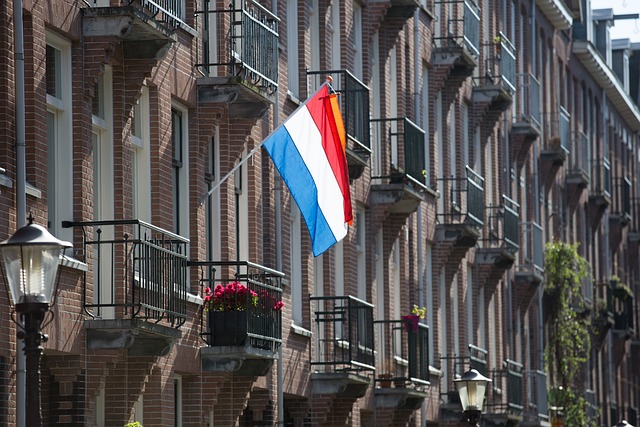Housing in the Netherlands: Renting vs. Buying

The Netherlands, with its vibrant cities, picturesque countryside, and high quality of life, is a desirable place to live. However, the Dutch housing market can be challenging to navigate, especially for expats and first-time buyers. Whether to rent or buy a home is a significant decision that depends on various factors, including financial stability, long-term plans, and personal preferences. In this guide, we’ll explore the pros and cons of renting and buying in the Netherlands, helping you make an informed choice.
The Dutch Housing Market: An Overview
The Netherlands has a competitive housing market, characterized by high demand and limited supply, particularly in major cities like Amsterdam, Rotterdam, and Utrecht. This has led to rising property prices and rental costs, making housing one of the biggest expenses for residents. Additionally, the Dutch government has implemented regulations to protect tenants and promote affordable housing, which can influence your decision to rent or buy.
Renting in the Netherlands
Renting is a common housing arrangement in the Netherlands, especially in urban areas where property prices are high. Here’s what you need to know about renting:
Advantages of Renting
- Flexibility: Renting offers greater flexibility, making it ideal for individuals who may need to relocate for work or personal reasons.
- Lower Upfront Costs: Renting requires significantly lower upfront costs compared to buying. Typically, you’ll need to pay a security deposit (usually one to three months’ rent) and the first month’s rent.
- Maintenance and Repairs: In most cases, landlords are responsible for property maintenance and repairs, reducing the financial and logistical burden on tenants.
- Access to Amenities: Many rental properties, especially in urban areas, are part of larger complexes that offer amenities such as gyms, parking, and shared green spaces.
Disadvantages of Renting
- Lack of Long-Term Security: Renters are subject to the terms of their lease and may face rent increases or eviction if the landlord decides to sell the property.
- No Equity Building: Rent payments do not contribute to building equity or wealth, which can be a disadvantage in the long term.
- Restrictions on Customization: Tenants often have limited freedom to make significant changes to the property, such as renovations or decorating.
Cost of Renting
Rental prices in the Netherlands vary widely depending on the location, size, and quality of the property. In major cities like Amsterdam, Rotterdam, and Utrecht, rents are exceptionally high. For example:
- A one-bedroom apartment in Amsterdam can cost between €1,200 and €2,000 per month.
- A family home in Utrecht or Rotterdam can range from €1,500 to €3,000 per month.
Buying in the Netherlands
Buying a home in the Netherlands is a significant financial commitment, but it can also be a rewarding investment. Here’s what you need to know about buying:
Advantages of Buying
- Long-Term Investment: Owning a home allows you to build equity over time, which can be a valuable asset for your financial future.
- Stability and Security: Homeownership provides long-term stability and the freedom to customize your living space without restrictions.
- Potential for Appreciation: Property values in the Netherlands have historically appreciated, making real estate a potentially lucrative investment.
- Tax Benefits: Homeowners may benefit from certain tax deductions, such as mortgage interest and maintenance costs.
Disadvantages of Buying
- High Upfront Costs: Buying a home in the Netherlands requires a substantial down payment, typically 10-20% of the property’s value, as well as additional costs such as notary fees, transfer taxes, and registration fees.
- Ongoing Expenses: Homeowners are responsible for maintenance, repairs, property taxes, and insurance, which can add up over time.
- Lack of Flexibility: Owning a home can limit your ability to relocate quickly, making it less suitable for those with uncertain job prospects or a desire for mobility.
Cost of Buying
Property prices in the Netherlands are among the highest in Europe. In cities like Amsterdam, Utrecht, and The Hague, the average price per square meter can range from €5,000 to €8,000. For a typical family home, prices often exceed €400,000. Additionally, buyers must consider mortgage payments, which can be substantial given the high property values.
Key Considerations for Renting vs. Buying
When deciding whether to rent or buy in the Netherlands, consider the following factors:
- Financial Situation: Assess your savings, income, and ability to secure a mortgage. Buying a home requires significant financial resources, while renting may be more manageable in the short term.
- Long-Term Plans: If you plan to stay in the Netherlands for many years, buying a home may be a worthwhile investment. However, if your stay is temporary or uncertain, renting may be the better option.
- Market Conditions: Research the local housing market to understand trends in property prices and rental rates. In some cases, renting may be more cost-effective than buying.
- Lifestyle Preferences: Consider your desire for stability, flexibility, and the ability to customize your living space.
Cultural Attitudes Toward Housing in the Netherlands
The Netherlands has a strong tradition of renting, with approximately 40% of the population living in rented accommodations. This is partly due to the country’s robust tenant protection laws, which provide renters with significant rights and security. Additionally, many Dutch residents value the flexibility that renting offers, particularly in a country with a highly mobile workforce.
Tips for Navigating the Dutch Housing Market
- Start Early: Begin your housing search well in advance, especially in competitive markets like Amsterdam and Utrecht.
- Use a Real Estate Agent: A local agent can help you navigate the market, negotiate prices, and understand the legal requirements.
- Check for Subsidies: If you’re renting, you may be eligible for housing allowance (huurtoeslag) based on your income and rent.
- Understand Mortgage Options: If you’re buying, research mortgage options and consult a financial advisor to determine what you can afford.



